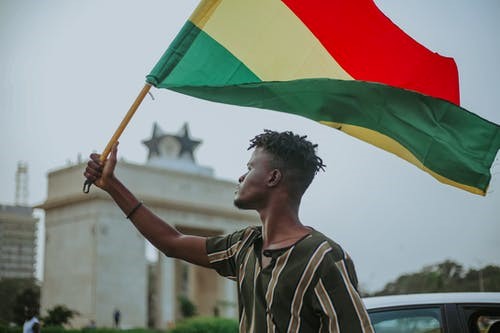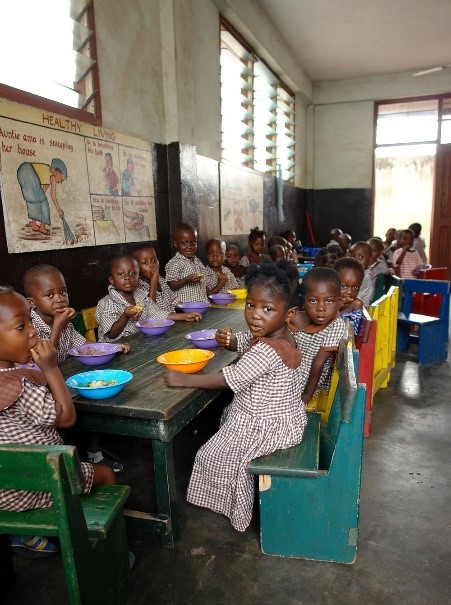Workers' Stories in the COVID-19 Era: Installment #7
August 13, 2021
Written by Tinu Koithara Mathew (PhD Student, School of Human Resource Management)
Edited by Christina Love (Undergraduate Student, Indigenous Studies and French)
In the seventh installment of the Workers' Stories in the COVID-19 Era dialogue series, we interviewed Ali, an educational sector worker; Edward, a public utility worker; and Ronald, a health sector worker. In the interview, the workers talked about the challenges they’ve faced in the wake of the pandemic including government intervention, socio-economic impacts, and the role of unions in bolstering employment rights. Despite working in different sectors, all of the workers emphasized the importance of investment in infrastructure to promote health and safety.
For privacy, all names have been changed to protect the identities of our interviewees.
Interview
Tinu: What were some of the challenges that workers have faced due to COVID-19?
Ronald: There was a lot of pressure put on healthcare sector workers. We were drained and exhausted emotionally as well as physically. The number of patients who contracted COVID-19 skyrocketed, which also meant that the workers had to do overtime. As an African country, we already had issues and inadequacies with our health system. When the pandemic hit us, things became worse as workers didn’t have enough personal protective equipment. Many of us workers contracted the virus due to the lack of access to healthcare resources and adequate infrastructure. Furthermore, some healthcare workers were not classified as frontline workers and, as a result, they didn’t receive benefits from the government. The healthcare sector is all about teamwork. Doctors, nurses, pharmacists, cleaning staff and all others must work together to ensure the health and safety of people. It doesn’t work and it’s not fair if some workers are excluded from receiving support.
We were drained and exhausted emotionally [and] physically.

Ali: COVID-19 has really impacted the economy both from the macro perspective and the micro, that is from the national to the household level. In terms of the educational sector, the academic structure has changed, and the government had to adjust to this new structure. All students could not be present at the same time in a school to avoid overcrowding, and so courses that were supposed to be taught in a period of 12 weeks were squeezed to be taught in a period of 10 weeks to reduce contact. Poor internet connectivity and lack of electricity supply will affect the quality of academic outcomes in the long run. As for the workers, private school workers suffered a lot compared to government sector workers because they depend on proceeds from parents who enroll their kids in those schools. Since those kids were not in the school, private school workers, including teachers, janitors etc., were either laid off or were asked to work at a reduced salary. There was no job security for them. This was the case at all levels of education, primary and secondary.
Edward: The public utility sector is slightly different. Most of the workers had to be on the field despite all challenges and few had the opportunity to work from home. If somebody has no water flowing or if somebody has no power, you need to attend to it for them. This exposes them to a higher risk of infection because of the nature of the services that a utility worker delivers. They had several challenges but had no other options or significant adaptations made to the sector. Many of us were victims to the challenges posed by COVID-19.
Tinu: As a worker, what might you tell the people in power (managers, the government, etc.) about your situation?
Ali: I think people in power should try to regulate the activities of private schools. Governments should support private schools in difficult situations like that of this pandemic by assisting to take care of the staff of those private schools who have faced many issues stemming from COVD-19. When the finances of the schools are stabilized, the government should also regulate these schools to ensure protection of the workers. Unions must also extend their services to the private sector and liaise with the government and the schools for the welfare of the workers.
Edward: Well, for the public utility sector, the primary concerns are related to issues of health and safety. COVID-19 really exposed the weaknesses of our healthcare system. While some of the workers had face masks and PPE provided by their employers, many workers did not. Cooperation and collaboration are key, and workers must raise their voice in a collective manner to change their situations. Unions must include clauses related to health and safety in their collective agreements so that the workers will be better equipped next time, should there be another pandemic.
Cooperation and collaboration are key, and workers must raise their voice in a collective manner.
Tinu: Do you think unions and workers’ organizations matter at this stage of the pandemic?
Edward: Our National Constitution allows freedom of association. Labour action is very important. With this pandemic, the approach to unions have changed. Before, workers were chased by unions and now workers are chasing unions for membership, knowing that unionization provides them with some security and socio-economic protection.
Before, workers were chased by unions and now workers are chasing unions for membership.
Ali: In the education sector, unions have stepped in to negotiate better terms for those who were asked to work at a reduced salary and negotiated emoluments for those who were laid off. Unions have complemented the efforts of the government to some extent, but beyond that, they give support to those who have lost their loved ones and they provide sanitation and personal protective equipment kits to members.
Ronald: Healthcare sector unions produced masks and distributed them among the workers. Unions also produced some educational videos on how to manage through the pandemic. Though unions were not consulted at the beginning, the government eventually included unions in discussions surrounding worker and pandemic response. Unions also used social media platforms for the dissemination of information. There were collaborations among doctors’ unions, pharmacists’ unions, and hospital unions to put pressure on the government for better outcomes for the welfare of workers. Because of these efforts, the government started offering some tax relief, utility subsidies, and extra salary to workers.
Tinu: How did COVID-19 working arrangements affect the socio-economic status of the workers and their families?
Edward: You know, we always advocate that one income source is not enough. So, people, apart from their main income source, have private businesses a lot of times. People and their families had their income level affected one way or another, and a lot of business had to shut down or reduce their service capacity. This was like a chain reaction. For example, the lack of meetings and conferences negatively affected the hospitality industry.
Ali: The education sector witnessed some unique impacts. COVID-19 affected the psychological state of most parents because they had divided attention because their kids are at home while they are working, whereas earlier they could work peacefully since the kids were at school. Workers had difficulty in asking for permission to stay home to take care of their kids. Additionally, the pandemic has resulted in a new source of pressure on their family income. Before, children got fed at school and the government absorbed the cost. Now, kids have to be fed at home using their parents’ income. This has put tremendous pressure on the breadwinners for the family. There were some isolated reports of rising teenage pregnancies as well, as most of the kids were home.
Ronald: Emotional stress was too much. Some of us had to leave our children at home and we couldn’t see them for several days. The schools were also closed. The workers had to self-isolate and healthcare workers would have to be quarantined at a hotel or a hospitality centre for several days before being able to see their families. Stigmatization during the early days was another concern because we are in the health sector and we deal with the patients directly. The uncertainty related to health and safety posed by COVID-19 caused a lot of stress among health sector workers and their families.
Tinu: What can be done to manage a pandemic-like situation while safeguarding the interests of workers?
Edward: We need to have a resilient healthcare infrastructure, both human and physical, to better be prepared for events like pandemics. When COVID-19 emerged, we realized that we were not proactive enough.

Ali: Governments should take the lead and collaborate with formal and informal sector workers to mitigate the economic impacts of a pandemic-like situation.
Ronald: I agree with Edward and Ali that health and safety are very important, and governments must ensure that the infrastructure is in place to safeguard the interests of people. Furthermore, I also think that unions can play a key role in advocating that.
Health and safety are very important, and governments must ensure that the infrastructure is in place to safeguard the interests of the people.
Tinu: Is there anything else that you would like to add?
Ali: Educational workers are also public sector workers. Hence, the wage disparities must be avoided. It shouldn’t be that the politicians and their families get the maximum wage increases and other public servants get just nominal increases.
Edward: We need to be proactive when it comes to the health and safety of people.
Ronald: I am a union member, and I would like my union to negotiate for better wages with the government as soon as the pandemic is over. We had been through a lot already, and we have really been pushing for this because of the pandemic.
